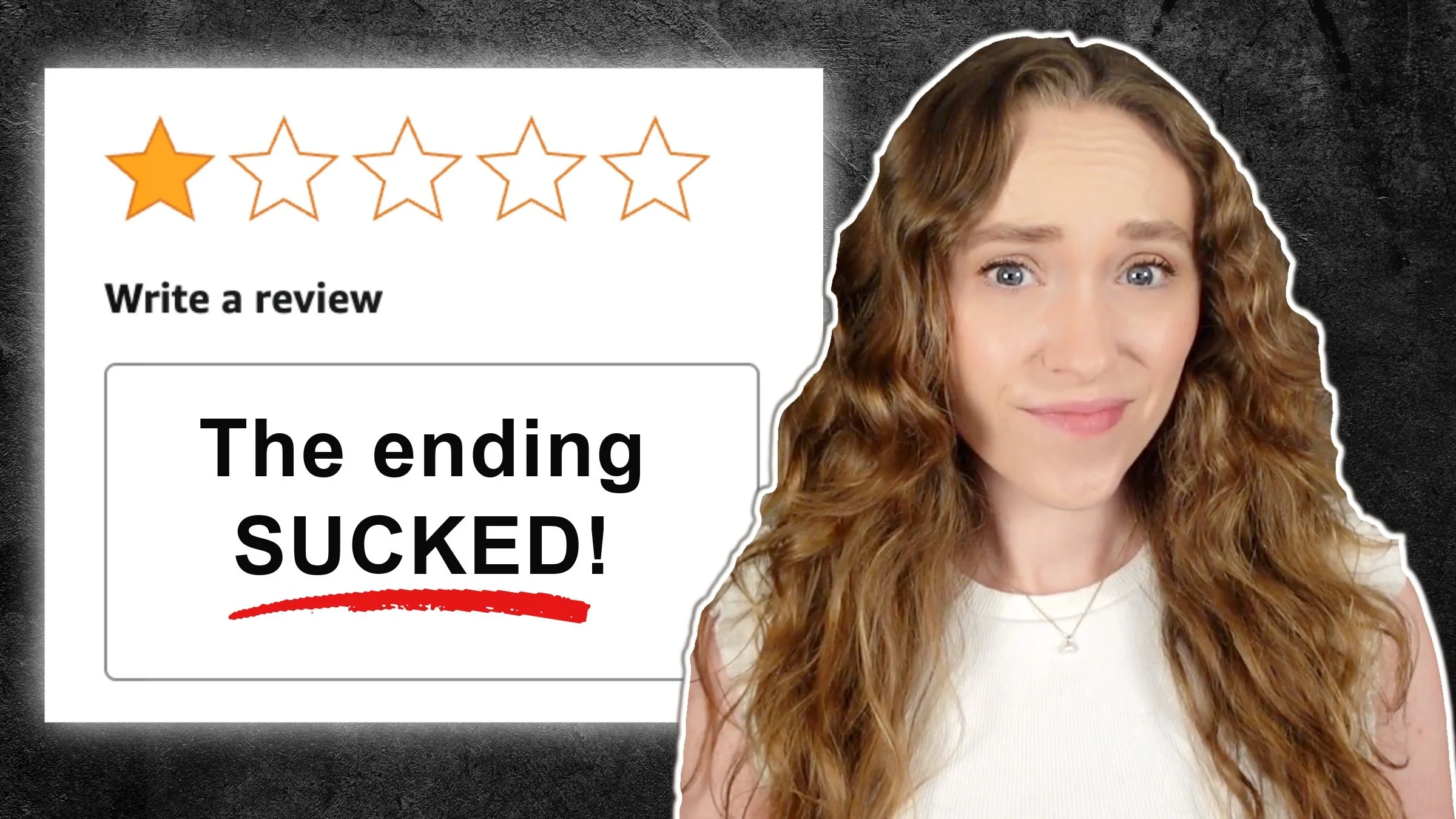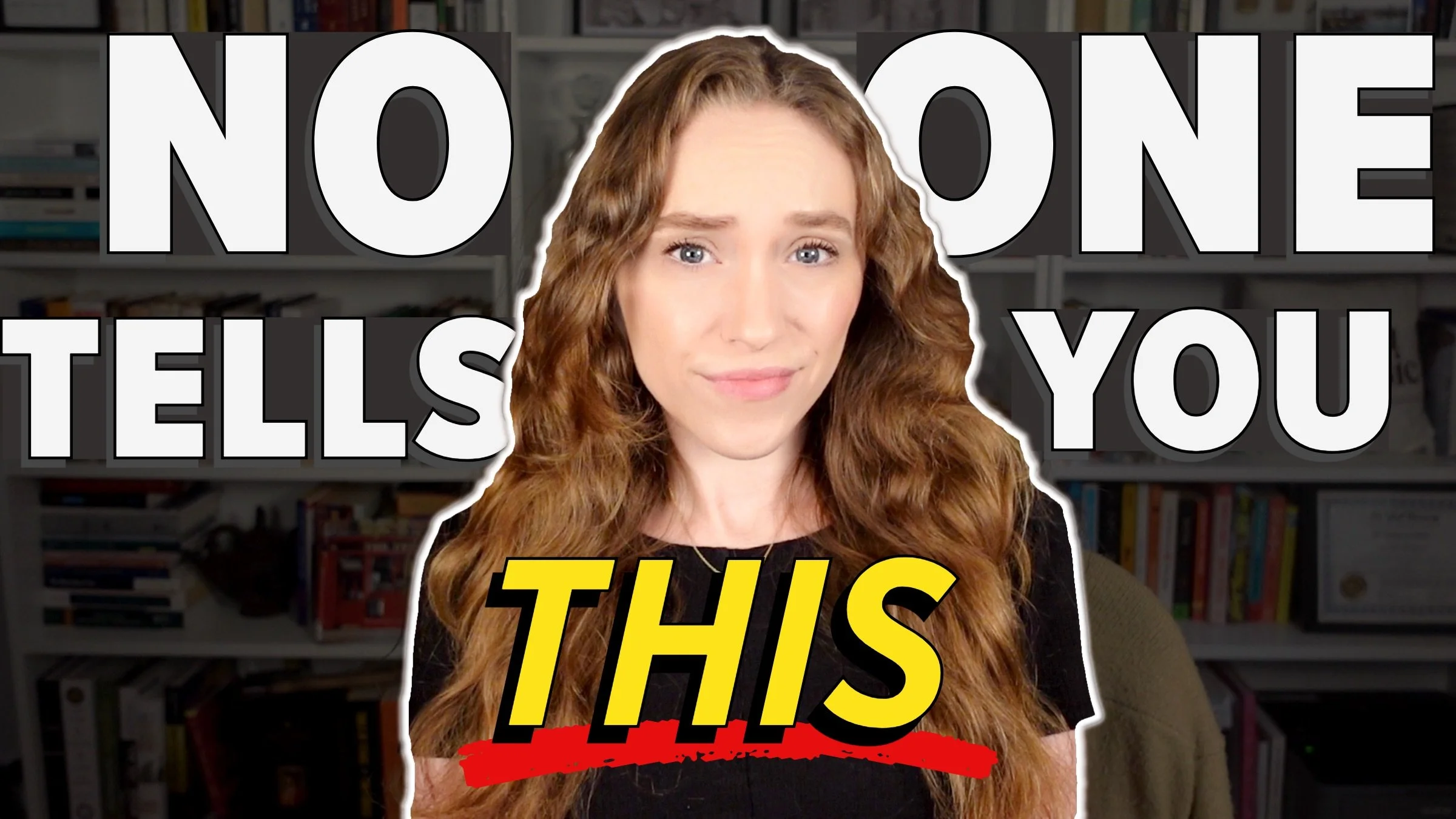How to Get a Literary Agent
HIT PLAY OR READ THE POST BELOW:
Finding a literary agent can feel as impossible as trying to find a unicorn, but the truth is if you’re hoping to be traditionally published by one of the major publishing houses, then finding a literary agent is an absolute must. I’ve compiled some qualities you and your project should have to help you learn how to get a literary agent.
It can be a long process full of rejection, but keep your hopes up because it is possible to find a literary agent. It just takes a lot of perseverance, dedication, and patience.
1. Show How Talented You Are
The first thing agents look for is an expected one: talent. Ultimately, literary agents are like recruiters or talent acquisition professionals. They are out there looking for the best and the brightest writers that are yet unrepresented, and they're looking to give them a voice.
Proof of “talent” can come in many forms, the most obvious being the sample pages you attach to the query letter. If you have any creative writing credentials, short story or fiction awards, or prior publication in literary journals or magazines, it also wouldn’t hurt to mention them in your letter.
That said, it’s not game over if you don’t have any prior professional writing experience, because in the end agents are looking for any unrepresented talent. The most important tool they will use to assess your talent is the words in your sample pages—so make sure they’re up to snuff.
2. Illustrate Long-Term Viability
The second thing agents look for is whether they can work with you throughout your entire writing career, or at least for a couple of years. Agenting is not about offering representation to a client, selling one book, and then calling it quits. The agents I’ve worked with work with their authors for several years, sometimes even up to a decade, so in general agents are looking for long-term partnerships.
I like to say that the agent and author relationship is similar to at-will employment. It’s understood that when you sign an offer of representation that you will be working together for the foreseeable future—but, of course, either of you can end that arrangement at any given time.
Since the agent’s intention is to stay together for the foreseeable future, this means the agent is going to be invested in whatever future ideas you have for book projects. So, if they are intrigued by the project you’re pitching in your query letter, a follow-up conversation you will likely have will be about what else you have in store. They want to see where your career is going and where you see yourself as a writer in the future, to ensure that the two of you will be a good match in the long haul.
There are cases where an author is working in a genre that the agent doesn’t intend on focusing on in the long term—if that’s your case, that agent probably isn’t the right fit for you as they won’t be able to fully help you through all the twists and turns of your career. Make sure you and any potential agent are having these conversations from the very beginning, so that you can make sure you’re the best match for each other.
Since you will be working very closely with your agent throughout your publishing journey, you should feel comfortable with being vulnerable and honest with your agent. After all, it’s their job to hold your hand through the publishing process—so if you can’t fully open up to your agent, that isn’t going to be a productive relationship.
3. Highlight Your Book’s Marketability
The third thing an agent will look for is the market fit of your book. When an agent is reviewing a query letter, the ultimate question they are asking themselves is whether they can sell the book to an editor at a publishing house.
As a writer, you might find it uncomfortable to think in terms of sales and profit. After all, you’re writing because you love your story and it’s one that you feel compelled to tell. You are a creative, and it should be that way. However, an agent is working with a business mindset and bringing that skill to the table. At the end of the day, their job is to sell books. If they absolutely love your book, chances are they are going to find a way to make it sellable. However, if they don’t see any angle in which they can make a sale, then it’s going to be harder for them to make an offer of representation to you.
This all means that as they’re reading through the query letter and sample pages, they are automatically considering how this project fits into the current publishing and book industry landscape.
Typically, agents will respond most positively to projects that fit within a well-defined genre. For example, if you’re pitching your book as a historical mystery or a romance, that will immediately give them something with which to compare your book to, as well as give them an idea of how you see your book fitting into the current marketspace. That said, agents are also looking for book projects that offer a twist on current genre standards or market trends, as they don’t want to present the same oversaturated book over and over to an editor at a publishing house. If it can make an editor say, “Oh, that’s different, I’ve never heard of that before!” it will help your book stand out.
In the end, I encourage you not to get too stressed over the marketability of your book, as the agent is going to be the professional with knowledge of the publishing landscape. They will provide the lens of how your project will fit into the marketplace. I often see writers getting hung up on what genre their book is or whether it will sell comparably to other similar titles, but these worries can be really debilitating for you creatively.
So let the agents be the assessors of market fit. It’s still important for you, as an author, to be cognizant of, but don’t stress too much over it.
4. Be Enthusiastic
The next thing an agent is going to look for in a writer is enthusiasm: they want you to feel energized about collaborating with them, about pursuing the traditional publishing process, and about your project.
One trick that I tell every writer that I work with on their query letters is to personalize your letter to every agent you reach out to. For example, after addressing the agent in your letter, immediately explain why you’re reaching out to them and why you’re excited to potentially work with them.
This will establish a couple of things: first, it will show the agent that you did your research; you know who they are and have an idea as to why they’d be a good fit for your project. Secondly, it shows that you are truly excited to work with them and the potential of a collaboration.
Again, your agent is trying to sell your book to a publishing house, so they need to have the complete confidence in your excitement and eagerness to put in the work to do whatever necessary to close the deal. After all, the publishing house also needs to be sold on you as an author, not just your book—they need to feel ready to collaborate with you and your agent.
5. Have (and Maintain) Trust
The last thing agents look for in writers is a big one: trust. As an author, you must be willing to trust that your agent has your best interests at heart and loves your project as if it were their own.
Because agents get dozens—if not hundreds—of submissions every day, if they’re taking an interest in your project, it’s because they truly see the potential in both your project and in you as an author. They want to help bring your vision into the world and will be there to hold your hand through the process, advise you through the tough times, and sometimes even be the shoulder to cry on. No agent is trying to swindle you (at least, no reputable agent that has a track record of making deals with major publishing houses).
When I was working at a literary agency and going through the submissions inbox, I once read through a query where the writer was submitting their sample pages for assessment, but also threatening to potentially sue the agent if the agent stole those 10 pages from their novel and published them under a different name. While this is an extreme example, it’s a great example of a client red flag. Even during the querying process, this writer was paranoid about working with an agent. They fundamentally didn’t trust a potential agent to be a professional with integrity.
If you do end up accepting representation from an agent, don’t assume that they will steal your work or your copyright, because at the end of the day they are working with your best interests at heart.
Trust also comes into play when you’re making some tough decisions with your agent, as publishing is full of tough decisions. For example, you are likely to go through a few rounds of revision between you and your agent before the agent feels comfortable submitting your book to editors at publishing houses.
Of course, you can and should have a dialogue about the changes they suggest. When I’m editing, I always encourage my writers to reach out with any questions or concerns so that we can have a back-and-forth conversation, because that’s a crucial part of the editing process. Your agent is looking at your book from an editing lens, so you have to be the creative maintaining the heart of the story.
At the same time, you need to take their recommendations seriously because your agent is a professional; they know the market, they know the current publishing landscape, and they know the editors that they will eventually pitch your book to, and so their recommendations are going to be for the sake of your success. Agents aren’t trying to destroy your vision or steal your work; they are trying to set you up for success since your wins are also their wins.
By maintaining trust in your publishing partner, your project, and yourself, you’re learning the key behind how to get a literary agent.
These are five qualities that will help you figure out how to get a literary agent! I hope this article helped give some perspective on how and why agents determine who they’re going to work with.
Thanks so much for reading, and happy writing!






